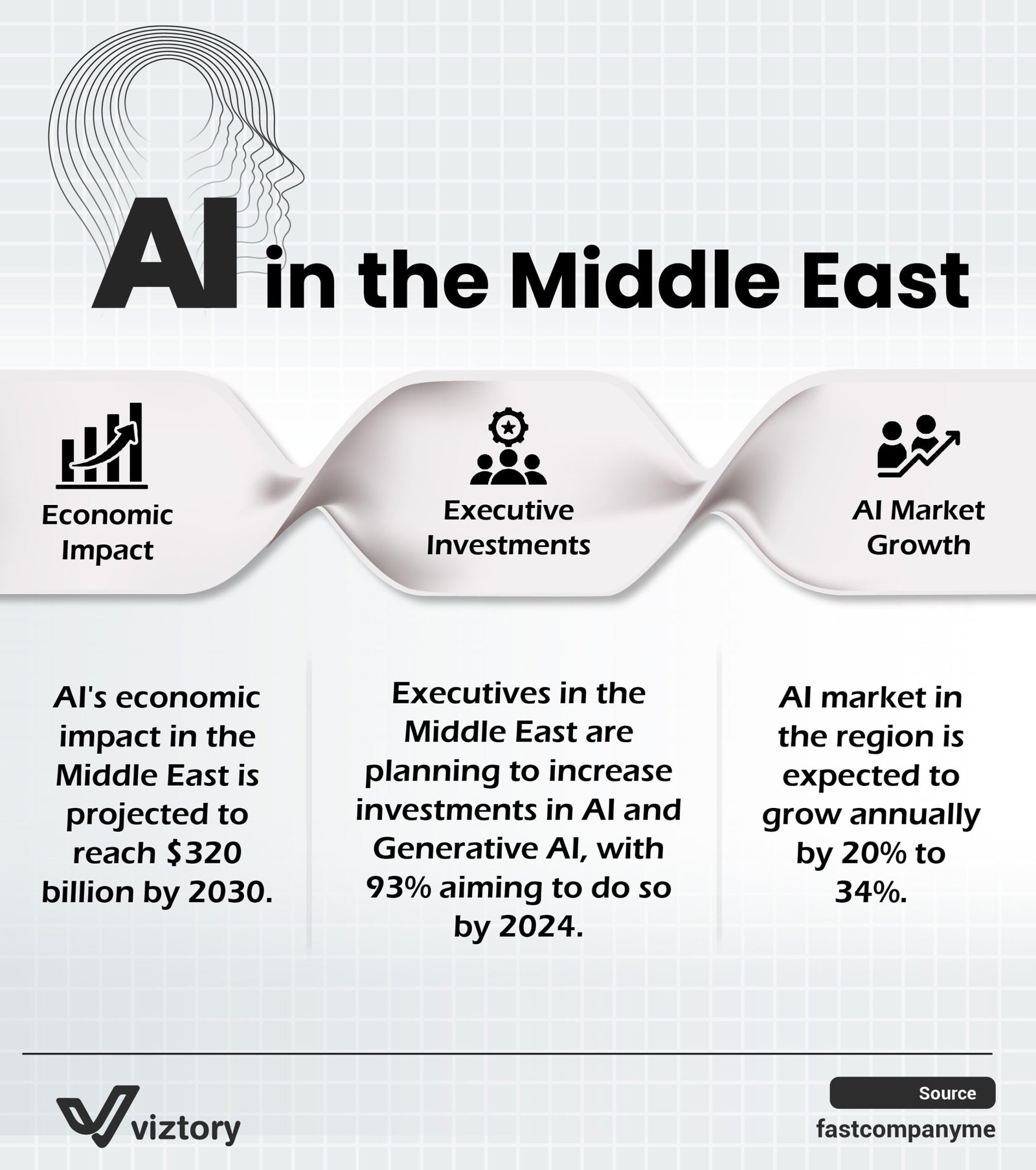AI in the Middle East
-
Jan, Tue, 2025
Economic Impact
AI is poised to significantly boost the Middle East’s economy, with projections estimating its contribution to reach $320 billion by 2030. This remarkable growth highlights the region’s strategic focus on integrating AI into key sectors such as healthcare, education, energy, and finance. Governments and private entities are leveraging AI-powered solutions to optimize processes, enhance productivity, and drive innovation, positioning the Middle East as a global technology hub.
Executive Investments
The commitment of executives in the Middle East to AI is unparalleled. According to recent reports, 93% of executives plan to increase investments in AI and Generative AI by 2024. This trend underscores a widespread recognition of AI’s transformative potential. Businesses are adopting AI tools to streamline operations, personalize customer experiences, and develop innovative products, ensuring competitiveness in an increasingly digital world.
AI Market Growth
The AI market in the Middle East is witnessing exponential growth, with an annual expansion rate projected between 20% and 34%. This rapid development is fueled by supportive government policies, such as national AI strategies, and significant investments in AI research and infrastructure. Startups and tech giants alike are capitalizing on this momentum, fostering a vibrant AI ecosystem that attracts global talent and partnerships.
Conclusion
AI in the Middle East is more than just a technological trend; it is a cornerstone of the region’s economic and industrial transformation. With substantial economic contributions, robust executive investments, and dynamic market growth, the Middle East is well-positioned to lead the AI revolution on a global scale. As the region continues to embrace AI, it is essential to address challenges such as data privacy, ethical considerations, and workforce adaptation to ensure sustainable and inclusive growth. The future of AI in the Middle East is bright, promising unparalleled opportunities for innovation and development.

